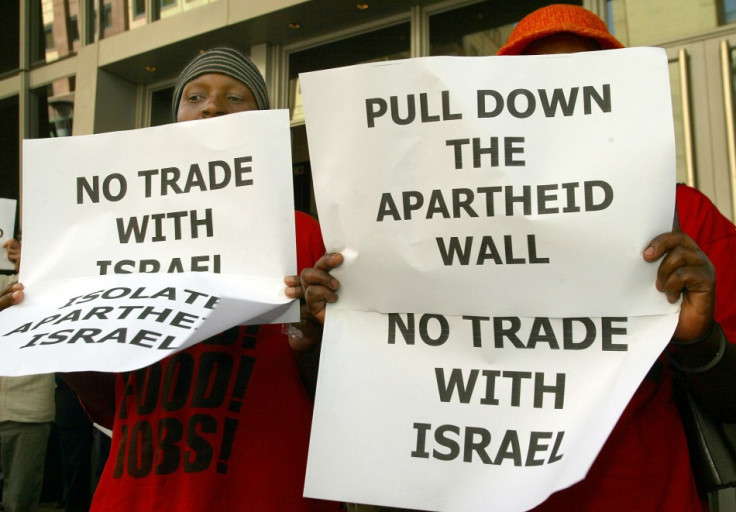Israel Outraged by South Africa's Plan to Describe West Bank as 'Occupied Palestinian Territory' on Product Labels

Israel has summoned the South African ambassador over the country's decision to label products imported from settlements in the West Bank as coming from "Occupied Palestinian Territory".
The labelling plan was originally submitted by South Africa's Trade and Industry Minister Rob Davies three months ago. According to government spokesman Jimmy Manyi, the plan is specifically designed to ensure customers are not "led to believe that such goods come from Israel".
The new labels have received a torrent of condemnation among Israel's political elite, led by deputy foreign minister Danny Ayalon, who said that South Africa "remains an apartheid state".
Ayalon added: "Unfortunately it turns out that the changes that took place in South Africa over the years have not brought about basic changes in the country."
Israel's foreign ministry has given its own reaction, issuing a statement describing the labelling as "blatant discrimination based on national and political distinction".
The statement adds: "This kind of discrimination has not been imposed - and rightly so - in any other case of national, territorial or ethnic conflict.
"What is totally unacceptable is the use of tools which, by essence, discriminate and single out, fostering a general boycott."
The foreign ministry also harked back to apartheid, saying the decision to label West Bank products in this way "brings to mind ideas of a racist nature which the government of South Africa, more than any other, should have wholly rejected."
Warren Goldstein, South Africa's chief rabbi and chair of the country's Zionist Federation, said he was "outraged" over the cabinet's decision and said that the Jewish community was denied "any meaningful opportunity" to explain its position to the government.
Defence
In response to the Israeli condemnation, the South African cabinet claimed it was in line with the country's stance "that recognises the 1948 borders delineated by the UN" and does not accept "occupied territories beyond these borders as being part of the state of Israel".
The UN actually delineated borders in the 1947 Partition Plan. It is not clear whether Pretoria is referring to this act, or the 1949 Armistice Lines.
The South African Department of International Relations and Cooperation has remarked that the country has, since 1994, supported the Palestinian cause "whilst increasingly putting pressure on Israel at a bilateral and multilateral level with a view to finding a just and lasting solution".
Since 2003, the EU has demanded that Israeli exporters specify whether their products are made in settlements in order to prevent them from enjoying the duty-free status given to items coming from Israel.
A recent dispute between Tel Aviv and EU was triggered by a decision in Brussels to classify parts of the Modiin-Maccabim-Reut area as "settlements" not entitled to European tariff exemptions.
Israel's opponents have sought to galvanise a trade boycott movement against the Jewish state - along the lines of similar campaigns that targeted apartheid South Africa in the 1980s. In particular, thay have sort to identify agricultural products and goods produced by Jewish settlements in the West Bank, occupied by Israel after the 1967 Six Day War.
© Copyright IBTimes 2025. All rights reserved.






















